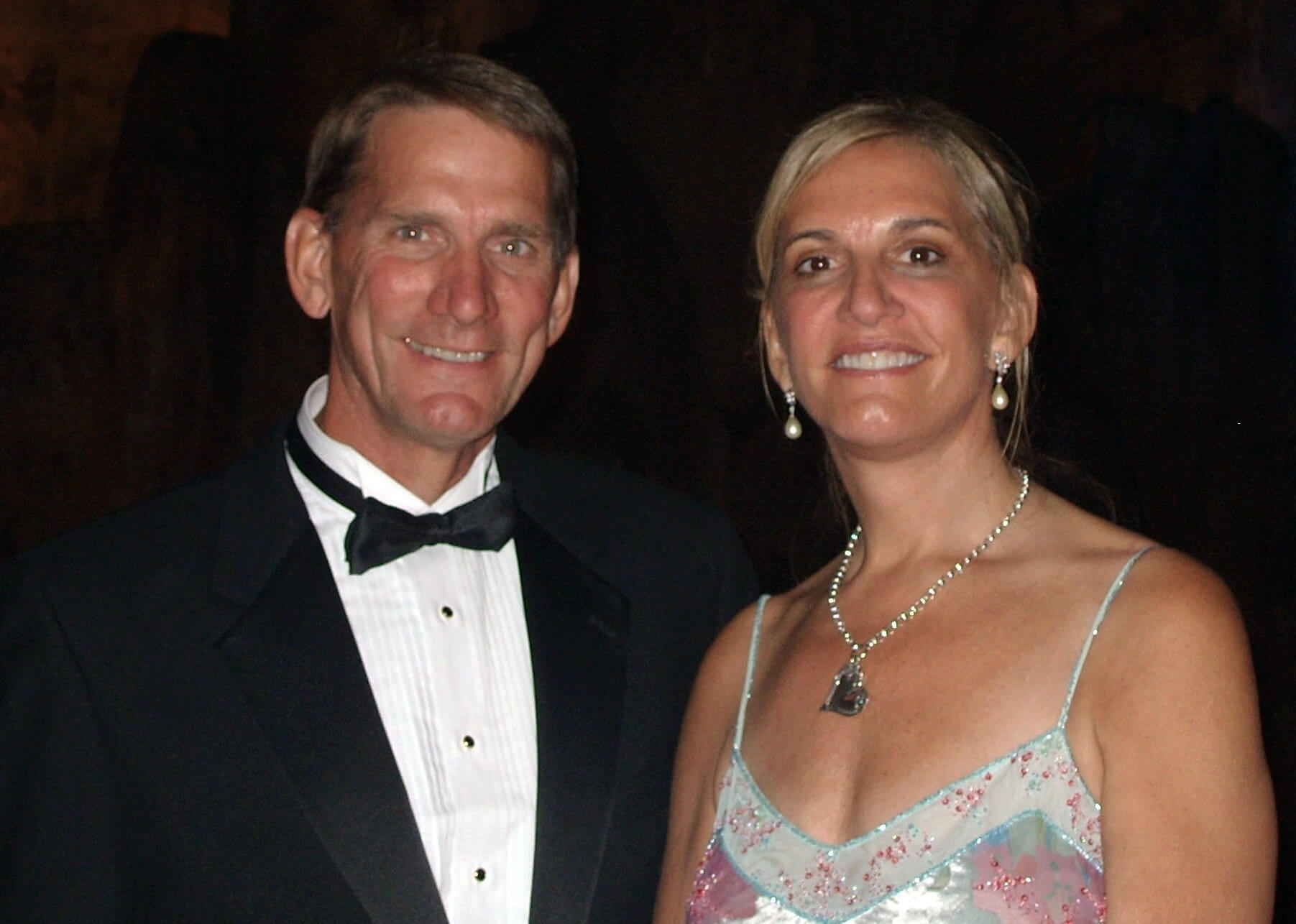
This content is brought to you by the Family Enterprise Case Competition (FECC), the world’s only case competition focused exclusively on family business.
Once a year, the University of Vermont in Burlington becomes the focus of a global event designed to foster the next generation of family business leaders and experts. Now in its seventh year, the Family Education Case Competition (FECC) sees students from over 45 global family business universities compete to find innovative solutions to problems outlined in real family business case studies.
The initial idea for an event came more than 20 years when the Family Business Initiative launched at the University of Vermont. The goal was to extend the study and exploration of business practices beyond the sole domain of textbooks and into the real world.
Siblings Chuck and Robin Tauck both graduated from the University of Vermont’s business program in the late 1970s. They were the alumni duo that supported the Family Business Initiative in the late 1990s.
Today, they are closely involved in the development of the Family Education Case Competition (FECC) and served as finalist judges at the seventh edition in January 2019. Their family business, Tauck Inc., is a luxury travel industry leader and has been in business for 94 years.
Recently, Tharawat Magazine had the opportunity to sit down with Robin and Chuck Tauck to discuss the origins of the FECC, what goes into a winning presentation and the future of family business education around the world.

Did your experience in long-standing family businesses serve as the impetus for your involvement in family business education?
Robin: Absolutely. When I started college at the University of Vermont, there were no educational opportunities for family business, entrepreneurship or stewardship. That was very impactful for me.
Fifteen years later, it inspired me to talk to my brother, Chuck, about giving back to our university as alumni. We were internationalising our family businesses at the time, which inspired us to think about global business education – to help our university start the very first family business initiative.
How did the Family Business Initiative get its start?
Robin: There was a new dean at the business school named Rocki DeWitt. She had a vision that the university could leverage the experiences of the family businesses of Vermont and New England for the undergraduate studies course. The alumni and leaders of family businesses would come to the university and participate in think tanks. She envisioned real-life situations from the business world as learning opportunities for the students.
They held several sessions every year with different speakers, including the Von Trapp family, the Chittendens and the Taucks. These retreats exposed the students to real-life examples as opposed to academic manuals in business classes. That’s how the Family Business Initiative started.
As somebody who’s in his mid-60s, I’m impressed by the talent and enthusiasm that these young students bring to the process. For me, it’s a window into the wonder of what FECC has become for the university and the students.
Has this real-world case study approach benefitted your own business practice?
Chuck: One thing this whole experience has certainly brought to light for us is that we missed a lot because we weren’t exposed to all of that back in the day. As somebody who’s in his mid-60s, I’m impressed by the talent and enthusiasm that these young students bring to the process. For me, it’s a window into the wonder of what FECC has become for the university and the students.
Robin: When the family business initiative started, students and alumni benefitted a lot from it. Every session would have specific learning objectives that would be different each time. For example, one session would be all about hiring your first non-family CEO. Others might be focused on communications in multigeneration transitions or succession plans.
An alumni leader would present a challenging verbal case study from their business world. After the presentation, they would open it up for group discussions and round tables. It was a very effective approach, and the outcomes of the discussions were very insightful. There was a mix of generations at the FBI events.

Your involvement in those early stages must make it especially satisfying to see how it has evolved into the FECC that we know today.
Robin: Of course. Collaborative teamwork is a necessity in family business, and the FECC competition has not only taken it to a whole different level but also advanced the understanding of family businesses. We are both very proud to have been the original sponsors of the initiative and to be finalist judges now.
Chuck: The way it’s been embraced by the global community has been astonishing. I believe the last session involved teams from 15 countries from as far away as Australia, Malaysia, India, China, Sweden, France, Mexico, Guatemala and Colombia.
The degree to which other programs around the world have adopted family business as a subset of a business curriculum is marvellous. Now it’s at such a level that students are trained and coached.
As judges, we were invited one morning to attend a seminar that the Swedish team’s coach was holding about how he approaches student coaching. The Swedish team has won in both the undergraduate and graduate divisions many times. It was fascinating to learn about the rigour of their approach. It’s like an Olympics of family business case competitions. The quality of the Swedish team’s presentation is evident in the coaching and training.
Collaborative teamwork is a necessity in family business, and the FECC competition has not only taken it to a whole different level but also advanced the understanding of family businesses. We are both very proud to have been the original sponsors of the initiative and to be finalist judges now.
As a judge in the competition, what surprises you the most about the students?
Robin: When I was judging last year, I particularly noticed the professionalism of the students. Even though they may have been very new to the business world, and it was evident that they needed more time and experience to understand the depth of consequence or opportunities in some of their suggestions, their maturity was still impressive.
Whereas some of us in the business world have an understanding which comes from 20 or 30 years of experience with different divisions, global expansions and competitive environments, these students are only given three or four hours to prepare for the case study. Nevertheless, the ability to analyse a situation and make a quick decision is a very strategic and important aspect of a company’s future.
What is the significance of family business today?
Robin: Family businesses have always been the base of world economies. I see them as engines of prosperity. The majority of businesses are family firms. The reason why today there is an increasing number of family business education opportunities, associations, opportunities and sponsorships is that the transfer of wealth from the previous generation is the largest transfer of wealth ever in the history of the world – certainly in the United States. And family businesses post-millennium, thankfully, are focused on sustainability and their unique opportunity to contribute to society at large.
Chuck: I think the importance of family businesses can be found in the growth of the topic as a field of study. It’s the momentum and energy that started with some people who took it upon themselves to acknowledge, recognise and do the research in this field. They began looking at the models and enabled students to analyse family businesses through those lenses rather than just through accounting 101 and management textbooks.
The degree to which the study and appreciation of family businesses have changed is staggering. I remember back in 1994, when I returned to the family business with a focus on succession planning. I tried to find family business consultants who specialised in this area, and there weren’t very many to choose from. Today, there is a myriad of consultants and advisors to family firms. A lot of them come from management consulting, family therapy and other areas germane to these entities that are so different from non-family-owned and managed businesses.

What should family business education emphasise as the field continues to evolve?
Robin: I think there are a plethora of opportunities to learn from one another in this globalised world. Family businesses, which have historically been private in their operations, can now come together and share common issues and problems.
Even more importantly, I see the future as an opportunity to come together for global sustainability. Regardless of what industry we are in, we all collectively have a responsibility for the planet. Private enterprises and next generations have an opportunity to bring together business and social impact on the planet, and that has not been tapped at all in my view.
UVM was recently awarded the #1 position in the Princeton Review for ‘Green MBAs’ for its Sustainable Innovation MBA (SIMBA), rated among dozens of USA universities. This is a fit also with the family business program – contemporary and future-focused.
Chuck: It’s been said already that family business, unlike traditional corporations, tend to take a longer view in strategic planning. That’s why I believe we need to focus more on long-term governance as an approach for students.
There’s only so much time you have in four years of college, and you have to cover accounting, marketing and all the basic elements. However, the importance of governance cannot be understated.
Robin: What Chuck is describing is why, at our family company, we started something new called the Stewardship Council. It’s about stewarding the business rather than merely running the business.
It used to be that only later in life would you have the perspective of an owner and be concerned about something like governance. Today, however, a lot of young people in their late twenties and thirties are owners and are interested in more governance aspects of the family business.
These topics have not made it into the curricula of most business schools but, hopefully, we’ll see that in the near future. The new generation has so much to offer.









